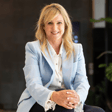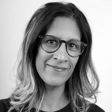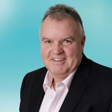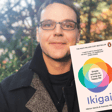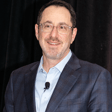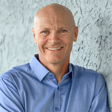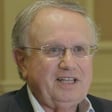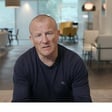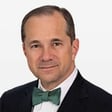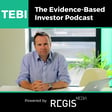Become a Creator today!Start creating today - Share your story with the world!
Start for free
00:00:00
00:00:01

Ep 13: EBI in the Netherlands
We all know by now about the huge shift taking place from active to passive management in the Anglo-Saxon world, especially the US. But what’s happening in continental Europe? Well, it’s actually in the Netherlands where the move away from active funds is really gathering pace.
Our guest on the latest TEBI Podcast, produced and sponsored by Regis Media, is Martijn Rozemuller, managing director of Think ETFs, based in Amsterdam. Martijn, a forms options trader, explains how he became disillusioned with active investing; why he believes in equal weighting trumps market-cap; why he’s so opposed to securities lending; and why he thinks too many Dutch are destroying value, rather than adding it in the Netherlands.
Transcript
Introduction to TEBI Podcast
00:00:04
Speaker
Hello and welcome to the latest TEBI podcast brought to you by the evidence-based investor in conjunction with Regius Media, connecting advisors with clients. I'm Robin Powell and lucky for some, this is episode 13.
Meet Martijn Rosamuller
00:00:21
Speaker
My guest this week is Martijn Rosamuller, managing director of Think ETFs based in the Netherlands. Martijn, thanks for joining us. You have a fascinating background. Briefly, tell our listeners about that.
00:00:34
Speaker
Well, I'm a former options trader. I used to work for a company called Optifer and I did arbitrage trading. In that way, I learned a lot about financial markets, about financial products and also how to dissect them to really see what's underneath the hood.
Lessons from Trading
00:00:53
Speaker
If, as a private investor, I would buy certain investment products,
00:00:58
Speaker
I would be very keen to know how they worked. It's interesting Martijn that many of the most eloquent advocates of evidence-based investing are those like you who've experienced active trading at first hand. What did you learn from that experience?
00:01:15
Speaker
Well, quite a bit actually. Well, before I went into the trading business, when I was in university, I was part of an investment committee as sort of a hobby. So I've been investing and trading quite a bit. And when I worked as a trader on the options exchange, one of the things I learned is
00:01:39
Speaker
Well, I was responsible for making markets in Aholt. Aholt is one of the big Dutch grocery shops. And in my opinion, I knew everything there was to know about Aholt. So I had a personal portfolio which also consisted of maybe even 20% Aholt stock, because I knew everything about Aholt. And when Aholt came into trouble in 2003,
00:02:08
Speaker
because they had a sort of a scandal in the United States and there was something wrong with their bookkeeping. I was as surprised as everybody else. So basically at that moment I learned that you cannot know everything about a company and even though you think you do you're always
00:02:29
Speaker
Well, there's always something you do not know. So basically, for me, that was sort of an eye opener. And as an investor, not as a trader, but as an investor, I learned diversified. That's the only thing you can do. Never assume you know everything there is to know. So your career took a different turn.
Founding of Think ETFs
00:02:48
Speaker
How did think ETFs come about? When I found out that I was unable to pick the right shares or pick the right stock,
00:02:56
Speaker
I was immediately drawn to ETFs. Now in 2003, when my ad-hoc mishap happened, ETFs were relatively new in Europe and were a couple of issuers active. So I started using those ETFs, let's say an ETF on the Eurostox 50 or even the Dutch local index AX. And what I found out was that if I invested through the ETF,
00:03:24
Speaker
I was much better diversified, so my risks were less. I also knew that beating the market was not possible, so using an actively managed mutual fund to me was not an option, also because they were much more expensive. But there was still one thing that was wrong with the ETF, in my opinion, and that was that
00:03:45
Speaker
I was not able to reclaim my dividend tax if I used the ETFs. So I started thinking about a solution. And when I finally found out what the problem was and how I could solve it, that was actually the second thought was, OK, so now I figured out how to solve this. Maybe I should make this into a company. So the journey was not that I
00:04:13
Speaker
thought about, hey, maybe I want to start a company, and let's think of a way to do that. I had a problem. I solved the problem. And I thought, oh, well, this could also be a good idea for a company. So this is basically why I founded Think. It's also where the name comes from. Because I thought I need to make people think about their investments, why they are using
Equal Weight Indexing Challenges
00:04:37
Speaker
either expensive, actively managed mutual funds or less expensive but inefficient ETFs that sort of make it impossible for them to reclaim the dividend tax. You're a strong believer then in ETFs and also in equal weighting. Tell me about that.
00:04:56
Speaker
Yeah, well, when I found it, I think our first ETFs were relatively simple. Let's say the local indie says we had some mixed asset ETFs, which at that point were quite revolutionary. But that was basically it. And then about after two years, we needed to expand the range of products.
00:05:16
Speaker
And we got in touch with an index company that we wanted to use to create a new global equity product. Now, we looked at all the, let's say, normal indices. So there were a number of them. MSGR World is probably the best known. So this index company, they asked us a question. And they said, well, listen.
00:05:46
Speaker
do you really want to go with let's say the norm or do you want to know what the other alternatives are and obviously we were curious to find out what the other alternatives were and what we did is
00:06:01
Speaker
Actually they they gave us some some research and they said well go read this first see what you find and then get back to us now one of the things they gave us was research on equal weight indexing and equal weight indexing immediately appealed to us for at least two reasons the first reason is that if you think about active passive and you realize that People choose passive because of the evidence there is that actively seeking out the best stocks doesn't work
00:06:31
Speaker
Then it's actually quite peculiar that in a market cap-based index, you do allocate more money to bigger stock, as if you assume that there is a better return there.
00:06:42
Speaker
Otherwise, why would you allocate more money? So I thought, well, maybe equal weight is the ultimate way to invest passively. And there was another reason. Being a former trader, I was very aware of the fact that if the bigger indices do a re-weighting, all the traders have a field date. They are eagerly looking at which of the stocks go out the index, which go in.
00:07:08
Speaker
And in the bigger indices, those movements are massive and they have impact. So in your opinion, why don't the likes of Vanguard and Dimensional, for example, offer equal weight funds? Probably because something I noticed over the last couple of years, it's really hard to sell equal weight because it's different and people tend to be, well, they tend to stick to what's normal. It's more difficult to sell something that's different than to sell something people already know.
00:07:39
Speaker
So, yeah, well, most of the financial institutions, they have an internal benchmark, which is market cap weight. If they were to sell equal weight products or other smart beta type of indices, they would have more to explain if the outcome is different from what their internal benchmark dictates. And on that note, we're going to take a short break. Here's a message from our sponsor, Regis Media.
00:08:07
Speaker
The basics of investing gives your clients and prospects the lowdown on the terms they need to understand to have a better investing experience and achieve their life goals. The presentation is simple, clear and easy to follow. As with the other animator series, the basics of investing is available for any firm to buy, complete with their own branding. It's a 12-part series, but you can buy it in sets of three to spread the cost. Find out more by visiting RegisMedia.com.
00:08:36
Speaker
Welcome back to the TEBI podcast from the evidence-based investor. I've been talking to Martijn Rosenmuller, managing director of the Dutch firm Think ETFs. Before the break, Martijn, you were telling us about your preference for equal weighting. Something else you feel strongly about is securities lending.
Critique of Securities Lending
00:08:56
Speaker
What are your views on that?
00:08:57
Speaker
This is a bit odd coming from a former trader, because securities lending is quite elementary for the trading community. If you are a trader, you basically need to be able to lend securities in order to create a short position.
00:09:15
Speaker
However, from an investor's point of view, securities lending is quite strange, because as an investor you believe that the securities you own will increase in value, otherwise you wouldn't own them.
00:09:32
Speaker
So why would you facilitate somebody to bet against you? It makes no sense. And then the usual answer is, well, you get a reward. Security is lending fee. That's your reward for facilitating somebody to bet against you.
00:09:48
Speaker
In my mind, even if that reward would actually compensate for the downside, it's still not a good way to do it, because in most cases, the end investor gets only part of the reward. The financial institutions that offer the products usually take some of the rewards as well, and there's also
00:10:11
Speaker
a reward that's being kept by the guy who borrows the securities in the first place. So to me it's not a fair trade. People know all about the move away from active management in the US and to a lesser extent the UK.
Transparency and Investing Trends
00:10:27
Speaker
But when it comes to continental Europe, the Netherlands is actually leading the way on transparency and evidence-based investing. Fill us in.
00:10:36
Speaker
In Holland, we are seeing signs of a sort of positive change. When I started in 2008, it was still very, very much, well, actively managed funds and transparency was low. There were still kickbacks being paid by the actively managed funds in order to get distribution at banks and brokers.
00:11:01
Speaker
Over the last couple of years, these kickbacks or retrocessions have been banned, similar to what's happened in the UK. That helped. Also, regulators are looking closer at, well, transparency from both structural perspective as a cost perspective. I believe under MIFFIT2, well, that will improve even further because also the
00:11:30
Speaker
Banks and brokers need to be really transparent about all the cost in not only their part of the cycle, but also the other parts that they use, let's say the components they use. So I think the next 12 to 18 months will change
00:11:54
Speaker
for the better in Holland, transparency, especially on cost. And I think that will also lead to more evidence-based investing. People will become more aware of that these more expensive products do not add the value that they think they add. Actually, as a matter of fact, they take away value because it's not only
00:12:22
Speaker
the cost of managing the funds that takes away revenue. It's also the unnecessary actions, because it's not only that picking the right stock doesn't work.
00:12:35
Speaker
Market timing also doesn't work. Trying to go in and out of the market is something that you can promise your clients. And it sounds really interesting. And it might even be an argument why you are more expensive than somebody else. But in the end, if you do not create value by doing so, but actually destroy value, then you have no business case. And I believe that all the changes that are now being put in place will make it more
00:13:03
Speaker
visible to the end client what is actually going on and instead of making the financial products and financial services more complicated and more expensive you should make them more simple and less expensive and that's basically the only way you can create value for your clients.
Podcast Conclusion
00:13:24
Speaker
Hear, hear to that Martine, thank you very much. That was Martine Rosenmuller from Think ETFs. Thank you as well to our sponsor Regis Media. If you're a financial advisor and you want to find out how Regis Media can help you attract, retain and educate your clients, visit the website RegisMedia.com. Finally, a request.
00:13:46
Speaker
If you've enjoyed this podcast, please subscribe to it on iTunes or on SoundCloud. And if you really want to get into my good books, why not write a review on iTunes? It'll only take a few moments, and you really will be helping us to educate the end investor. Until next time, from me, Robin Powell, and our producer, Kent Lau, goodbye.


